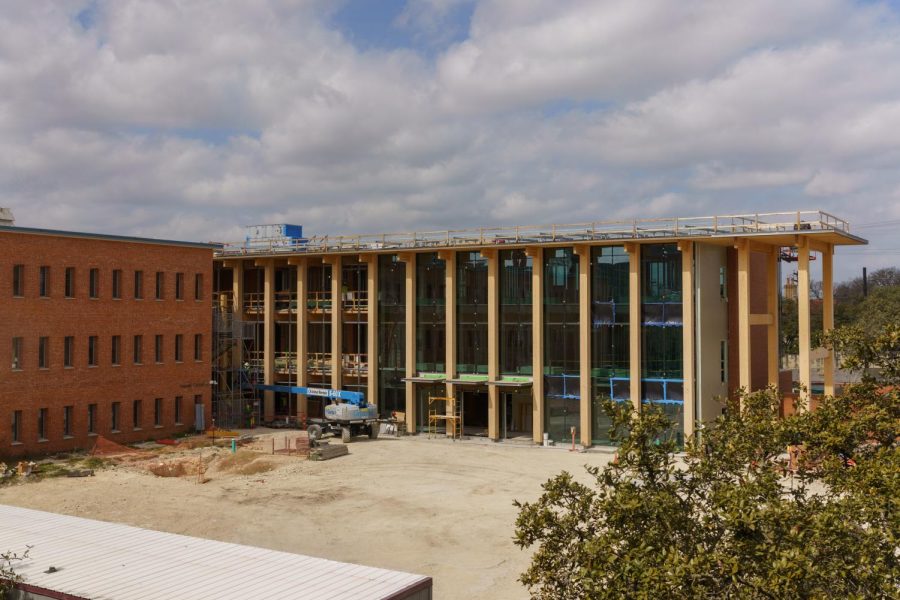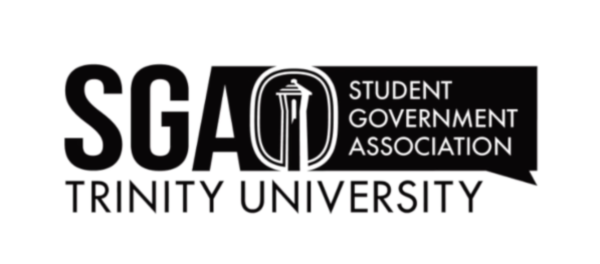Trinity University reclassified as Baccalaureate Arts & Sciences University
Shift from Regional Master’s University comes with changes
In January, President Danny Anderson announced that Trinity University had been reclassified by the Carnegie Classification of Institutions of Higher Education. Trinity, formerly classified as a Regional Master’s University, made the move to becoming a Baccalaureate Arts & Sciences University. This will change the way Trinity is ranked by US News and World Report to being a National Liberal Arts college.
“When we were classified [as a Master’s University] in the 1970s, Trinity had 15-20 masters degrees. We had lots of graduate students and it was different, in terms of the makeup of the campus. We’ve stuck with that because there are so many small master’s universities in the U.S., that they divide them up. When they go to the rankings in the US News and World Report, they include us in Regional Universities: West,” said Anderson.
However, this classification no longer embodies the Trinity experience. Because of this, Trinity petitioned to change its classification to a National Liberal Arts College.
“In the 1980s and 1990s, Trinity eliminated almost all of its master’s degrees and decided to redirect its energy to be a residential, primarily undergraduate liberal arts college. Students today experience Trinity as a liberal arts college but our classification did not say that,” Anderson continued.
Now, the school will be ranked by US News and World Report with small, undergraduate, arts-and-science-focused schools that are more similar to Trinity.
“Prospective families that are looking at us as a college will be looking at us in a different category. In a category now, that better reflects our true peers and probably what these prospective families are looking for as a college education,” said Eric Maloof, Vice President for Enrollment Management. “Looking forward, in the next decade, we feel like we are in a better position to attract students who, from the very start, seek to understand the value and the cost of a private liberal arts college.”
The petitioning process was fairly straightforward and led by Kara Larken-Skinner, Executive Director of Institutional Research and Effectiveness.
“The Carnegie classification system reviews their process roughly every three years … and when they do that they reclassify all the schools. There are a small number of schools that fit into two categories and they ask the school which category they want to be in. Trinity is one of the few schools that is in this double category and got reached out to,” Larken-Skinner said.
Though this new classification will have very little impact on the student experience, Megan Mustain, Vice President for Academic Affairs, believes it will positively change the makeup of students applying to Trinity.
“I think folks in Texas especially, they know what Trinity is. I don’t know that folks elsewhere in the country do because they look at us on a list with a lot of universities that don’t look like us. So this allows us to be on the national stage, recruiting fantastic students, like the ones we get, from all over the country,” she said.
Maloof looks at Trinity being ranked among more competitive schools as a way to improve rankings from US News and World Report; therefore, it will challenge Trinity to give students a better, more rigorous college experience.
“We feel like benchmarking against the very best liberal arts colleges in the country is something that will behoove everyone on the campus, most importantly the students. It will start to align our policies and be more student-centric in how we look at the student journey and to ensure that our student success numbers reflect that of our peers and aspirant universities across the country,” Maloof said.
Finally, it will bring value to getting a degree from Trinity.
“It really is one of the top liberal arts colleges in the country and the degree is going to be very meaningful because people will know about Trinity,” Anderson said. “So all the things that we are trying to do is help students know more about us and how do we make our student’s degrees more visible.”
Eric Maloof stresses that the reclassification will not fundamentally change Trinity as a campus.
“We are not changing our core offerings in academic areas, we are not changing class size, or the size of the student body, we are not changing those things that make Trinity who Trinity is … We are not trying to become a different institution, we’re trying to be the best version of what Trinity is and what we have to offer,” said Maloof.

My name is Emma and I am a sophomore from Lockhart, Texas. I have worked at the Trinitonian since Spring 2021. I am an English major and hope to become...

My name is Sam (he/him) and I'm a photographer here with the Trinitonian. I'm a senior Communications and German double major from Austin, Texas, and...










